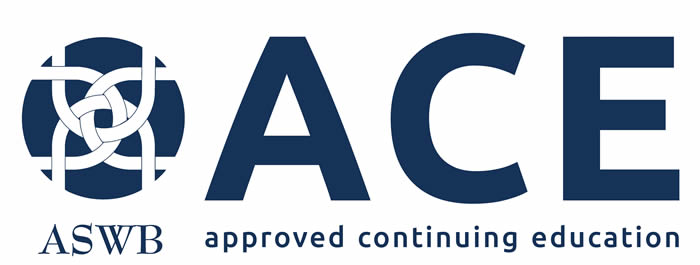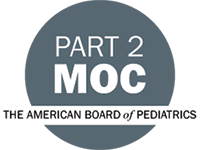
COURSE CREDITS & HOURS
14 AMA PRA Category 1 Credits™14 ACPE Credits
14.0 Contact Hours
14 CE Credits for Psychologists
14 ASWB ACE Credits
14 MOC (Part II) points in the American Board of Pediatrics' (ABP) Maintenance of Certification (MOC) program
COURSE FEES
TARGET AUDIENCE
PROGRAM PURPOSE
These talks are designed to update providers on some of the most common neurodevelopmental problems facing children today including ADHD, ASD, FASD and anxiety, and provide practical guidance to incorporate new office-based strategies that include screening children for developmental, behavioral and emotional problems, prenatal alcohol exposure, and social determinants of health and providing brief counseling. Lastly, these talks are designed to help pediatric providers gain comfort and skill in prescribing psychotropic medications to children for problems including ADHD and anxiety disorders.
Topics:
- Dermatologic Emergencies and Urgencies
- Better Identify patients with life threatening skin disorders
- Office Evaluation of Abdominal Pain
- Interpret the subtle symptoms and signs of serious abdominal pain
- "Serenity Now": Caring for Addicts and their Families
- Recognize opportunities to intervene in helping patients and their families who suffer from addiction
- A Brief Look at the History of Medicine: Can the Dead Teach the Living?
- Discover that challenges we currently face today are not so new.
- Identify competent and compassionate approach to challenging clinical scenarios
- The Latest UTI Guidelines - What's New?
- Diagnose and treat those with urinary tract infections
- The Secret in the Care of the Patient - Without Getting "Your Hands Cut Off"
- Discover how to avoid malpractice by choosing good practices which will be clearly identified using concrete examples
- Diagnostic Dilemma's: What Does This Patient Have? Case Files
- Diagnose those with protean symptoms or signs, with an emphasis on life threatening, catastrophic disorders
- ADHD update
- Use behavioral screening tools to identify children with behavior and emotional problems
- Apply evidence-based strategies to diagnose and treat children with ADHD including the use of psychotropic medication
- ASD update
- Use screening to identify children with possible ASD
- Demonstrate increased comfort in managing children with ASD in primary care settings
- Demonstrate increased comfort in prescribing psychotropic medications for children with ASD
- Evidence based-positive parenting: Developing positive behaviors
- Apply evidence-based positive parenting strategies as a part of routine well-child care
- Identify specific places during the well-child visit to include discussion of evidence-based positive parenting strategies.
- Evidence based-positive parenting: Managing challenging behaviors
- Apply evidence-based positive parenting strategies as a part of routine well-child care
- Identify specific places during the well-child visit to include discussion of evidence-based positive parenting strategies.
- Office Based Strategies to Help Anxious Children
- Increase techniques that can be used in the office to work with parents of anxious children
- Identify office-based strategies to help children cope with anxiety
















 Credit Designation for Social Workers: As a Jointly Accredited Organization, Continuing Education, Inc is approved to offer social work continuing education by the Association of Social Work Boards (ASWB) Approved Continuing Education (ACE) program. Organizations, not individual courses, are approved under this program. Regulatory boards are the final authority on courses accepted for continuing education credit. Social workers completing this course receive 14 Clinical continuing education credits.
Credit Designation for Social Workers: As a Jointly Accredited Organization, Continuing Education, Inc is approved to offer social work continuing education by the Association of Social Work Boards (ASWB) Approved Continuing Education (ACE) program. Organizations, not individual courses, are approved under this program. Regulatory boards are the final authority on courses accepted for continuing education credit. Social workers completing this course receive 14 Clinical continuing education credits.








